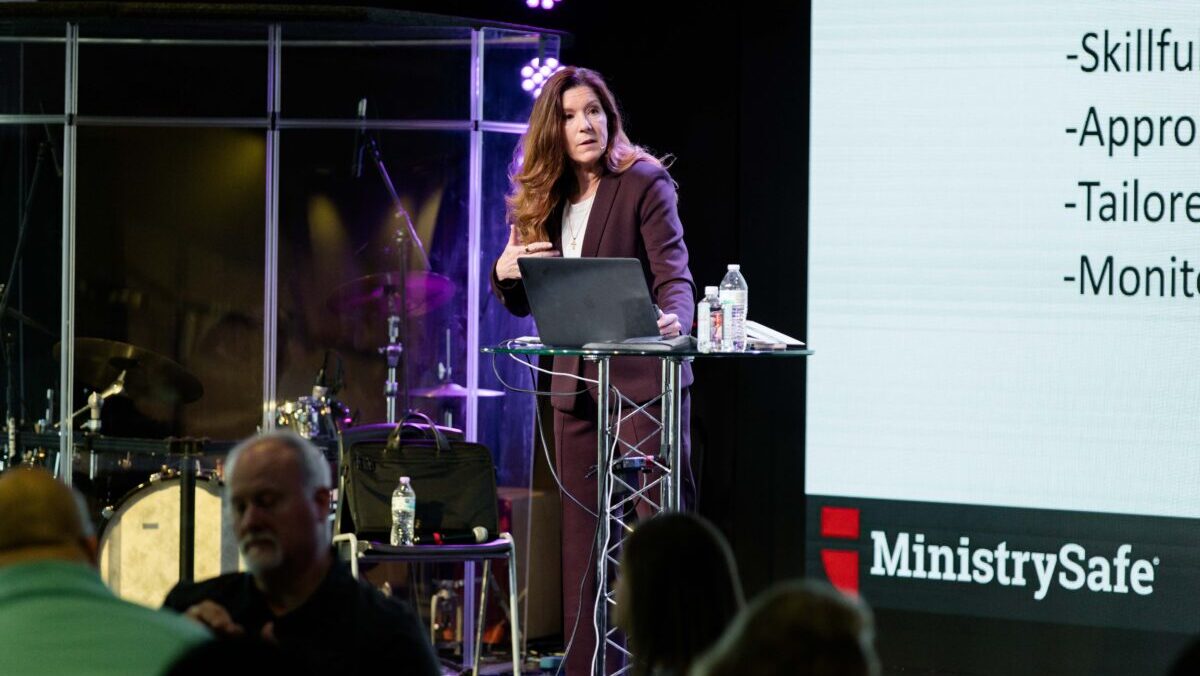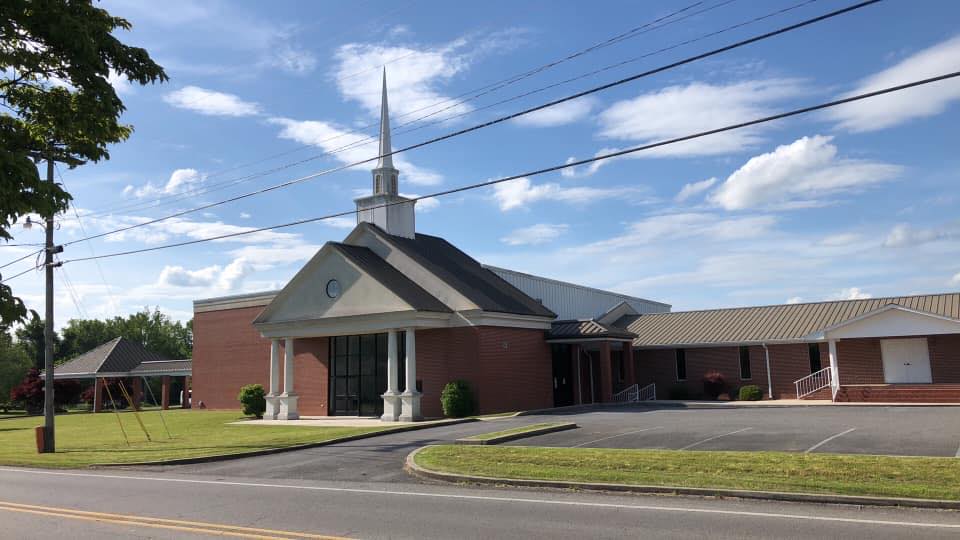Attorney Kimberlee Norris said there is no single legal issue affecting the church today more than child sexual abuse.
“We have 750,000 registered sex offenders in our country according to 2023 figures, and one in four females and one in six males has experienced abuse before the age of 18,” she said.
“Two-thirds of those abused don’t report abuse until adulthood. The most often-spoken reason for a lack of reporting is, ‘They won’t believe me,’ and the abused typically talk with six people before anything is done to help them.”
Norris, a Fort Worth attorney and co-founder of MinistrySafe, directed a workshop at First Baptist Church Trussville on Feb. 20. The event was sponsored by the Alabama Baptist State Board of Missions.
Diligence needed
Norris said the child predator is skilled at grooming children — often economically or physically disadvantaged children — and convincing them that they both will suffer if the incident is reported and that they will be disbelieved.
“This is a control measure the predator maintains and it’s effective,” she said.
Norris said churches can’t ever be “accidently excellent” in preventing child sexual abuse. Churches must do background checks for paid staff and volunteer workers with children and youth, but background checks alone aren’t enough.
“Fewer than 10% of offenders encounter the U.S. justice system and can be identified with background checks,” she said, “but this is a necessary step. Church staff and volunteers must have eyes to see and mouths to speak when they observe inappropriate behavior. It’s not uncommon for us to hear, ‘Now that you mention it…’ after a predator is identified. We must do a better job of being assertive and speaking up.”
Responsible care
Norris said the two-adult rule is our “friend,” and that church staff and volunteers must put away cell phones and be attentive to the children under their care at all times.
“Our attitude must be ‘not my kids and not on my watch,’” she said.
A special concern she addressed is mandatory reporting of alleged abuse.
Norris said ministers are “mandated reporters” under Alabama law and must report all reasonable allegations of child neglect or sexual abuse. She believes soon every adult will be designated mandated reporters.
“The law is going in this direction,” she said. “If they’re paid by us, wear our name tags or volunteer in our ministries, they’re responsible to care for our children.”
‘When in doubt, report’
Norris said the law doesn’t require notifying parents or giving them veto power over reporting since sometimes parents ask that a report not be filed to protect the privacy of their children.
“When in doubt, report,” she said. “If the child is not in danger, I recommend the parents be notified when a report has been made. Reporters have civil and criminal protections and can’t be sued in good faith.”
Norris recommends that a report be given to the Department of Human Resources or law enforcement immediately and that the report be followed up with a written statement. Then the church must allow law enforcement to do their investigation.
“According to the [Centers for Disease Control and Prevention], less than 3% of child abuse allegations are false,” Norris said. “The person under investigation must step back from their volunteer or paid staff position during the investigation, and the church should also offer counseling to victims.”
Norris said even if the allegations prove false, the church can learn lapses in their safety procedures and do better in the future.
Careful with congregation
Churches must also be careful to report abuse to the congregation.
“I call this a ‘family meeting,’” she said. “We begin with prayer, make a statement and try to be transparent. We never name the alleged victim, nor do we have an open forum for discussion. We ask anyone with more information to share it with law enforcement or with a designated church leader. Many churches have faced rightful criticism when they’ve tried to sweep alleged abuse under the rug.”
Norris said congregations cannot afford to be “organization-centric,” insisting the mission or the brand is more important than the victim. Nor can the congregation be “abuser-centric.”
“One church dedicated a Facebook page to ‘pray for Bob,’ a staffer accused of abuse,” she said. “Alleged bad actors need to step away from the spotlight for a time.”
‘Victim-centric’
Instead, she encouraged churches to be “victim-centric.”
“False allegations are rare, and the victim and their family circle must see us do this well,” she said. “We err on the side of the children.”
Norris cautioned against what she called “cheap forgiveness.”
“I’ve known churches that asked victims and abusers to come together and forgive one another,” she said. “Healing is an ongoing process, so we must respect the rights of victims and not force them to face their abusers in the process. We also realize that abusers face real and continuing consequences for their offenses.”
The MinistrySafe website is MinistrySafe.com.
SBOM offers Alabama Baptist churches a one-year scholarship in MinistrySafe for $50. Membership includes job application and reporting forms, suggested guidelines and training videos. The contact telephone for SBOM is 800-264-1225.
Additionally, reporting guidelines are available at safe.alsbom.org/reporting-guidelines.






Share with others: